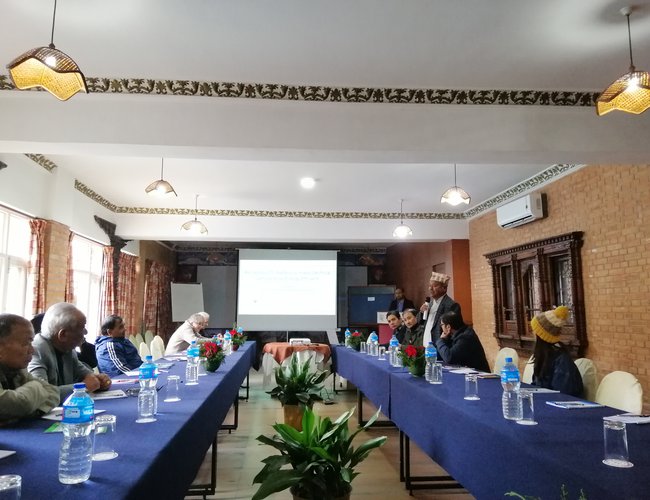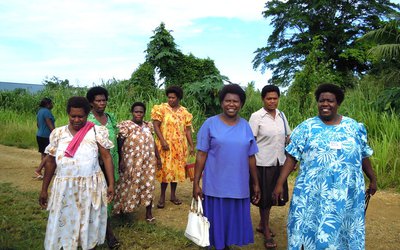
Rajan Thapa from CEN said that Lithium batteries are more economic, incurs less maintenance time and cost, more number of operating days, environmentally safe and durable life, provides less risk to damages and more number of people interested towards the services are some competitive advantages over the Lead acid battery.
Highlighting the major findings of the survey conducted by CEN in 2018, He concluded that the safa tempo that are running for more than two years left no signs of deterioration and the performance is very impressive.
President of Electric Vehicle Association Nepal (EVAN) Umesh Raj Shrestha said “There are numerous advantages of Lithium battery which outweighs the disadvantages therefore many people are replicating it and are encouraged towards it”. He also added that in context of Nepal, financial burden is a major downside for many tempo owners who wants to shift towards Lithium battery from Lead-Acid battery.
Clean Energy Nepal (CEN) together with the Renewable Energy and Energy Efficiency Promotion in International Cooperation (REPIC), Switzerland conducted a workshop on “Reliability of Lithium Battery to make Electric Vehicle more Energy Efficient”.
The workshop was organized to share the outcomes and major findings of the pilot project initiated to test the feasibility of Lithium battery powered safa tempo in Kathmandu. With ever increasing demand for efficient and clean public transport and worsening air quality due to fossil fueled vehicles, urban lives are becoming challenging.
Electrifying of the public transport was thought of a great idea to kick start and with time, the innovation and engineering has led technologies steps ahead.
Markus Eisenring from REPIC discussed about the initiation of the project and compared the performance between Lithium and Lead Acid batteries. He shared about different advantages of using Lithium battery in vehicles to drive towards cleaner transport modes and urged stakeholders to prioritize the cleaner and efficient technologies. He highlighted that operating lithium battery can save as much as double energy compared with Lead acid battery which has much less lifespan.
Thomas Kuster shared about the technical aspects of lithium battery installation and operation and its technological advantages with especially designed Battery Management System (BMS) that controls and ensures durability of Lithium battery to optimize the energy consumption.
Ganga Bahadur Thapa, Chairman of National Economic Concern Society Nepal emphasized that the government should allow tax subsidy for batteries and spare part imports of E-vehicles which is a great way of promoting alternative energy, sustainable and environment friendly vehicles.
Thapa voiced that there should not be just policy formulation but also implementation of policies. Participants from various from different organizations, educational institutions, local government bodies, general public, vehicle importers, stakeholders and media were notable attendees of the workshop. The workshop held on 3rd January, 2019 was attended by around 40 participant, including Chairman of Clean Cooperative Hridaya Manandhar, owner and Manager of Tempo charging station Ramhari Neupane, Engineer Anil Bajracharya were amongst the speakers.
Professor Dr. Amrit Nakarmi, Activist Bijaya Man Serchan of Pashupati Energy, Madan Shah from the Swiss Embassy. The speakers and participants urged for the better and affordable cleaner transport and collaboration amongst relevant stakeholders. The workshop concluded on a positive note that has successfully demonstrated and piloted the lithium battery in ten safa tempo and has been replicated in 15 more safa tempo through encouraging participation of private investors.
- Global IME Capital’s “Samunnat Yojana 2” Mutual Fund Opens for Public Offering from July 6
- Jul 03, 2025
- Nepal Among Investment-Friendly Countries, Immense Opportunities Exist – Prime Minister
- Jul 03, 2025
- Supreme Court upholds appointment of 52 officials
- Jul 03, 2025
- Weather Forecast: Generally Cloudy In The Hilly Areas With Heavy Rainfall In Some Areas Of Bagmati And Koshi Province
- Jul 03, 2025
- MCA-Nepal Welcomes Continued U.S. Support for MCC Nepal Compact Implementation
- Jul 02, 2025















